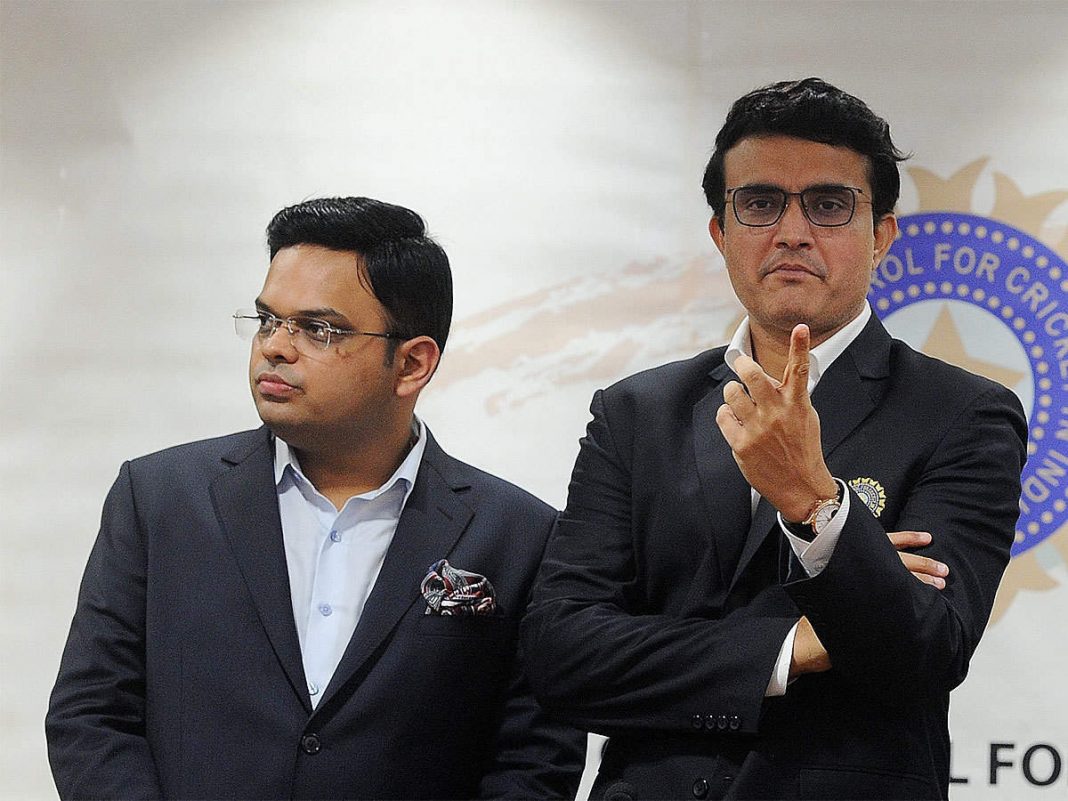Notably, the Board of Control for Cricket in India (BCCI) wants to extend the tenures of its President and Secretary, Sourav Ganguly and Jay Shah. To do so, it has to alter Clause 6.4 of its constitution, for which it has pleaded to the Supreme Court.
How does Clause 6.4 affect Sourav Ganguly & Jay Shah?
Clause 6.4 of the BCCI’s constitution states that “An office-bearer who has held any post for two consecutive terms either in a state association or in the BCCI (or in a combination of both) shall not be eligible to contest any further election without completing a cooling-off period of three years.”
Jay Shah the current secretary of BCCI, is also the son of Home Minister Amit Shah. Before undertaking the role of Secretary of the Board on October 19, 2019; Jay Shah performed his duties as the Joint-Secretary of the Gujarat Cricket Board.
President of the Board, Sourav Ganguly also served as the President of West Bengal Cricket Association. Thus, in accordance to Clause 6.4, Ganguly and Jay Shah should be denied from carrying-on with their posts. As they first need to undergo a cooling period of three years before getting elected for a third spell.
Along with clause 6.4, the appeal also seeks modifications to the following clauses or rules:
6.5, 7.3, 15 (3) and (4), 19(2) and 45 of the BCCI constitution.
How does it cite National Interest?
BCCI has petitioned the Supreme Court on this issue. Arun Dhumal, treasurer of the Board asserted that it is against the national interest; if a rule stops a person “with rich and varied experience” from working for public interest.
The petition states that: “…Any provision which has a direct and indirect effect of restricting a person with rich and varied experience whereby they have acquired and strengthened the organising capacity, finance generating capacity and administrative skills will be to the detriment of the game of the cricket and would, therefore, necessarily be against ‘public interest’ and ‘national interest’ as our teams play against teams of all cricket playing countries”.
The BCCI further stated that, “ …[A] person necessarily passes through many terms in the other two tiers (district and state level) before he is experienced to be able to effectively contribute in BCCI in the larger ‘national interest”.
Intervention by the Supreme Court
The Supreme Court had appointed Justice Mukul Mudgal-headed panel, after the 2013 Indian Premier League (IPL) spot-fixing infamy. The Apex Court asked the panel to audit accusations of links between fixers and the cricket management. On the grounds of the report, the court asked the former chief justice of India, R.M. Lodha, to recommend administrative reforms for the functioning of the Cricket Board.
The Lodha committee’s recommendations included cooling periods for holders of any post in the board; this functioned as Clause 6.4 of the BCCI’s constitution. When asked for his stance on the BCCI’s move; Justice Lodha stated that “I don’t feel like giving any statement on BCCI as I feel it is demeaning to speak on BCCI‘s functioning”.
However, the stance of BCCI raises eyebrows in view of the fact that previously, for example, in 2004, the BCCI stated in the Apex Court that it is a private body and a not a national one. Adding that the activities of the board including the selection of the Indian team has nothing to do with the Government of India.
“If India plays England, it is a match played by the official team of BCCI and not the official team of India… We do not even fly the national flag nor do we use any national emblem in the activities of the Board”
BCCI counsel and senior advocate, Mr K.K. Venugopal
Thus, a body that has long maintained a stand of being a private body and not a national one citing “national interest” as a reason seems out of place.

